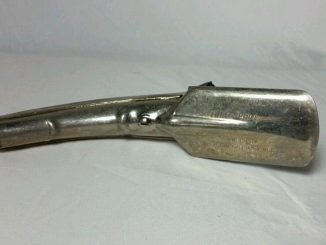Sutherland was born July 17, 1935 in New Brunswick, Canada, later moving to Bridgewater, Nova Scotia. Throughout his childhood he battled a number of serious illnesses including polio, rheumatic fever and spinal meningitis.
He left Canada to pursue an interest in acting at the London Academy of Music and Dramatic Art, and soon found work in TV and low-budget films.
He got a Hollywood breakthrough in the classic war film The Dirty Dozen, whose ensemble cast includes Lee Marvin, Charles Bronson, Ernest Borgnine and Jim Brown. It was the fifth highest grossing film of 1967.

After leaving London for Hollywood, Sutherland landed one of his most iconic roles in the 1970 anti-war comedy-drama MASH, originating the role of “Hawkeye” Pierce. MASH was one of the most successful films of the decade and is regarded as a classic.
Throughout the ’70s, Sutherland was a Hollywood leading man: his films include in the Oscar-winning Klute opposite Jane Fonda, the psychological horror Don’t Look Now, and the remake of Invasion of the Body Snatchers. He also appeared in the hit comedy Animal House.
In 1980, he starred in Robert Redford’s Ordinary People, which won the Academy Award for Best Picture. Other major films include Backdraft, JFK, Six Degrees of Separation, The Italian Job and Pride and Prejudice.

Sutherland also had success on TV, winning an Emmy Award for the 1995 film Citizen X, and a Golden Globe for the television film Path to War.
A younger generation of moviegoers was introduced to Sutherland through The Hunger Games, the hit dystopian blockbuster series: Sutherland starred as the villainous President Coriolanus Snow.
Though he surprisingly never received an Oscar nomination, he received an Academy Honorary Award in 2017, “for a lifetime of indelible characters, rendered with unwavering truthfulness.” He also received a star on the Hollywood Walk of Fame in 2011, and on the Canadian Walk of Fame in 2000.

Sutherland was married three times; he was married to actress Francine Racette for 52 years until his death. He was previously married to Lois May Hardwick and Shirley Douglas, and also had an affair with his Klute co-star Jane Fonda.
He had five children — including most famously his son Kiefer Sutherland, the actor best known for playing Jack Bauer in 24.
”I was too young to go watch my father’s films in the cinema,” Kiefer Sutherland told The Hollywood Reporter in 2017. “By the time I hit 20, VHS was available and a friend of my fathers had a lot of his films. In three days I watched Don’t Look Know, Klute, M*A*S*H, Kelly’s Heroes, 1900 and Fellini’s Casanova.”
“It was such a wide spectrum of characters, and I remember calling him up and I felt really badly that I grew up not knowing what a profoundly special actor he was, I felt horribly guilty of that. As a young actor, I had never known or seen another actor who’ve done characters so diverse either.”

Rest in peace to the iconic actor Donald Sutherland who lent his talents to so many great, classic movies — you will be missed
Shоuld Yоu Rinsе Grоund Вееf?
When it comes to cooking up a storm in the kitchen, ground beef is a culinary superhero. From tacos to spaghetti, this versatile ingredient has the power to turn a simple meal into a flavor-packed feast. But there’s a lingering question that divides kitchen warriors: Should you rinse your ground beef before cooking (or after)?
Some kitchen enthusiasts swear by rinsing their ground beef before (and after) cooking, and they have a few compelling reasons. First and foremost, rinsing can help reduce the fat content of the meat. If you’re trying to cut down on calories or simply want a leaner dish, giving your ground beef a quick rinse under hot water might be the trick.
Rinsing can also help eliminate excess grease, preventing your dish from turning into an oily mess. Imagine a perfect plate of spaghetti, where the star of the show isn’t overshadowed by a pool of unwanted fat. Rinsing can be the hero that sаvеs your meal from becoming a greasy catastrophe.
On the flip side, many cooks argue that rinsing ground beef is a culinary sin. One of the primary concerns is flavor loss. When you rinse ground beef, you risk washing away not only the fat but also some of the savory juices that make your dish delicious. After all, who wants a bland and dry burger when you were aiming for a flavor explosion?
Another point against rinsing is that it can be a messy affair. Picture yourself at the sink, trying to juggle a pound of ground beef while hot water splashes around. It’s not the most glamorous part of cooking, and the cleanup might not be worth the potential benefits.

While rinsing fat from ground beef down the sink might seem likе a convenient solution, it can lead to serious plumbing issues. As the fat cools, it solidifies and can clog pipes over time. This creates a recipe for disaster, potentially causing blockages, slow drainage, and even the need for costly plumbing repairs.
Dispose of fat from ground beef by letting it cool and solidify, then scrape it into a sealable container. Toss the container in the trash, preventing plumbing issues caused by pouring fat down the sink. Proper disposal ensures a smooth-running kitchen and avoids potential pipe blockages.
So, should you rinse your ground beef? The answer depends on your culinary goals and personal preferences, but our short answer is no. If you’re a flavor enthusiast who wants every drop of deliciousness, skipping the rinse is the way to go.
Whether you’re Team Rinse or Team No-Rinse, the most important thing is to enjoy the process of creating mouthwatering meals. In the end, the choice is yours.





Leave a Reply